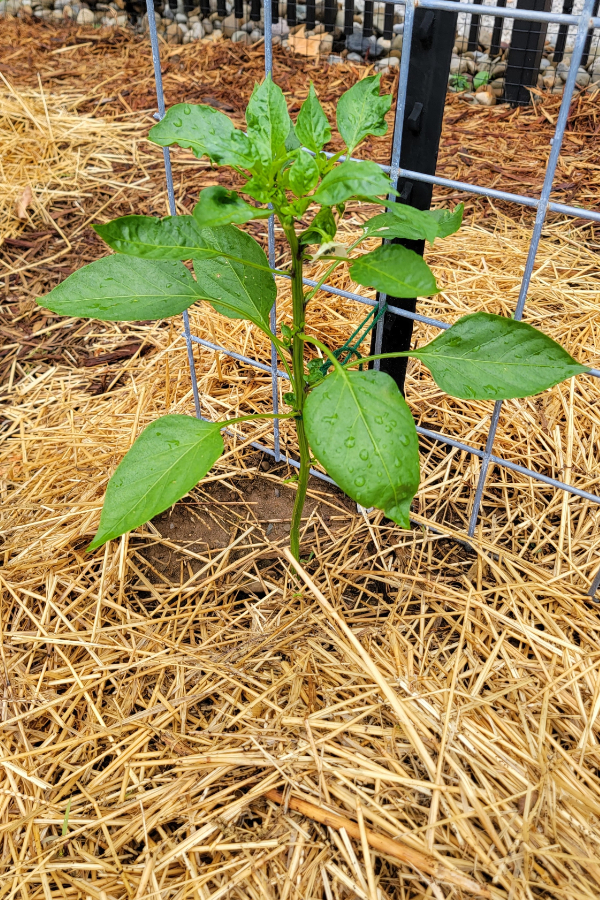Organic Vs. Synthetic Fertilizers: Which Is Best for Supporting Healthy And Balanced Pepper Plants?
In the world of nurturing healthy pepper plants, the choice between organic and artificial fertilizers stands as an essential decision with significant implications. While both alternatives aim to offer important nutrients to support plant development, the subtleties of their influence on the dirt, plant health, and the atmosphere trigger a debate that echoes throughout the gardening area. Recognizing the unique benefits and potential risks of each plant food type is crucial for pepper cultivators seeking to maximize their returns while maintaining an eco-conscious and lasting approach.
Advantages of Organic Fertilizers
Organic fertilizers offer an environmentally-friendly and sustainable approach to beneficial pepper plants, supplying crucial nutrients without the usage of artificial chemicals. These all-natural fertilizers are obtained from natural sources such as garden compost, manure, bone dish, and seaweed, promoting dirt wellness and biodiversity. Unlike artificial fertilizers, natural alternatives release nutrients slowly, making sure a well balanced and consistent supply for pepper plants to thrive.
One substantial benefit of natural plant foods is their ability to improve dirt structure and water retention. By improving soil health, organic fertilizers advertise advantageous microbial activity, which aids in nutrient uptake by pepper plants. Furthermore, organic plant foods decrease the danger of chemical run-off, shielding water sources from pollution and guarding the atmosphere.
Moreover, natural fertilizers add to long-lasting dirt fertility by promoting the growth of valuable soil organisms. These microorganisms help break down organic issue, releasing nutrients in a form that is conveniently obtainable to pepper plants. best fertilizers for peppers. By promoting a healthy dirt environment, natural fertilizers sustain lasting pepper cultivation techniques that profit both plants and the setting
Disadvantages of Synthetic Fertilizers
Synthetic plant foods, in contrast to their natural equivalents, pose different drawbacks when used to nourish pepper plants, influencing both plant health and ecological sustainability. One significant disadvantage of artificial plant foods is their propensity to leach nutrients from the dirt swiftly.
Additionally, the overuse of artificial fertilizers can add to water pollution. Excess fertilizers not soaked up by plants can remove right into water bodies, resulting in eutrophication, where algae flowers deplete oxygen levels in the water, damaging marine life. Additionally, synthetic plant foods are usually originated from non-renewable sources, such as fossil fuels, adding to carbon discharges and environmental destruction throughout their production.
Nutrient Absorption Contrast
When comparing artificial and organic fertilizers in terms of nutrient absorption, natural plant foods have the benefit of giving an extra balanced and slow-release source of nutrients. Organic plant foods contain a selection of macro and micronutrients that are not only valuable for the plants yet also promote healthy and balanced soil microbial task, which aids in nutrient uptake.
In addition, organic plant foods improve soil framework and water retention capability, enabling pepper plants to access nutrients a lot more efficiently. This better dirt quality facilitates root Homepage advancement, allowing much better nutrient absorption. Artificial plant foods, although originally increasing plant development as a result of their high nutrient concentrations, may prevent long-lasting nutrient absorption by derogatory dirt health with time.
Ecological Influence Factors To Consider

On the various other hand, synthetic fertilizers, although usually even more concentrated and quickly readily available to plants, can have detrimental results on the setting if not applied appropriately (best fertilizers for peppers). Their manufacturing needs high power inputs, leading to greenhouse gas emissions and adding to environment change. The runoff of excess artificial fertilizers can pollute water sources, leading to eutrophication and harming marine environments.
Finest Fertilizer Practices for Peppers
When feeding pepper plants, maximizing nutrient uptake and reducing environmental influence are key considerations. To accomplish this, it is necessary to adhere to finest fertilizer methods tailored to the details demands of pepper plants. One crucial technique is to carry out a dirt examination before using any type of plant foods. This examination can determine the pH degree of the dirt and determine any nutrient deficiencies, directing you in selecting one of the most appropriate plant food solution.
An additional crucial practice is to feed pepper plants at the correct time. Generally, peppers profit from receiving plant food at growing and after that again when they begin to blossom. Over-fertilizing can lead to vitamins and mineral inequalities and hurt the plants, so it is essential to comply with suggested application rates.
In addition, choosing a additional reading balanced plant food with an NPK ratio that matches pepper plants' requirements is fundamental. Ultimately, combining artificial and organic plant foods deliberately can help support healthy pepper plants while minimizing ecological influence.
Conclusion

Organic plant foods use a lasting and environmentally-friendly strategy to beneficial pepper plants, providing crucial nutrients without the use of synthetic chemicals. Unlike synthetic fertilizers, natural alternatives release nutrients gradually, making sure a well balanced and steady supply for pepper plants to prosper.
Artificial plant foods, in comparison to their natural counterparts, position numerous drawbacks when made use of to nurture pepper plants, impacting both plant health and wellness and environmental sustainability. When comparing organic and synthetic plant foods in terms of nutrient absorption, organic fertilizers have the advantage of providing a more balanced and slow-release resource of nutrients.Additionally, organic plant foods improve dirt structure and water retention capability, allowing pepper plants to access nutrients extra effectively.